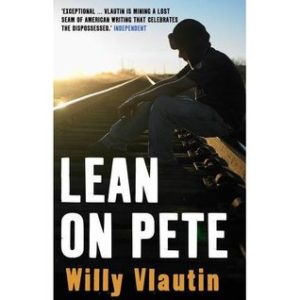 The writing style is incredibly simple, probably the most simple of any book I’ve read since childhood. It perfectly captures the realistic voice of the narrator, a sporadically-educated 15-year-old boy called Charley. Yet despite or perhaps because of the simplicity, it drew me into the story and was even beautiful in places.
The writing style is incredibly simple, probably the most simple of any book I’ve read since childhood. It perfectly captures the realistic voice of the narrator, a sporadically-educated 15-year-old boy called Charley. Yet despite or perhaps because of the simplicity, it drew me into the story and was even beautiful in places.
As well as the simplicity, Vlautin manages to convey the idea of a teenage narrator perfectly through Charley’s obsessions – unimportant things are told in great detail (more or less every meal is catalogued), while important things are glossed over or only half-understood. There’s no emotional self-reflection because Charley doesn’t have the capacity for it. He mentions his mother, who left when he was young, only occasionally and through his father’s views, not his own. When his father dies, there’s hardly anything on Charley’s reaction – it’s not something he can express, so he tells us about the practicalities of surviving and trying to find his aunt in Wyoming instead.
Although he cannot reflect on his own life and emotions, Charley finds he can talk, a little bit at least, to the horse he’s looking after, called Lean on Pete. Even then, there is no gushing – Vlautin just gives us glimpses of Charley’s state of mind through little things he says to the horse as he’s petting him, or through dreams or nightmares, before returning to the cataloguing of cheeseburgers.
The second half of the book contains more action, as Charley runs away from Portland and goes on the road to look for his aunt. The characters he meets are a mix of kind and violent, and you never know in a particular situation which he will find. The ending was a little bit flat for me, I think mostly because it was the only possible ending at that point, and so it lacked the power of surprise. But that was only a minor criticism – mostly I enjoyed this book, and was interested to learn how a world can be realistically evoked with hardly any physical description, and a story told engagingly with such simple, basic language.


